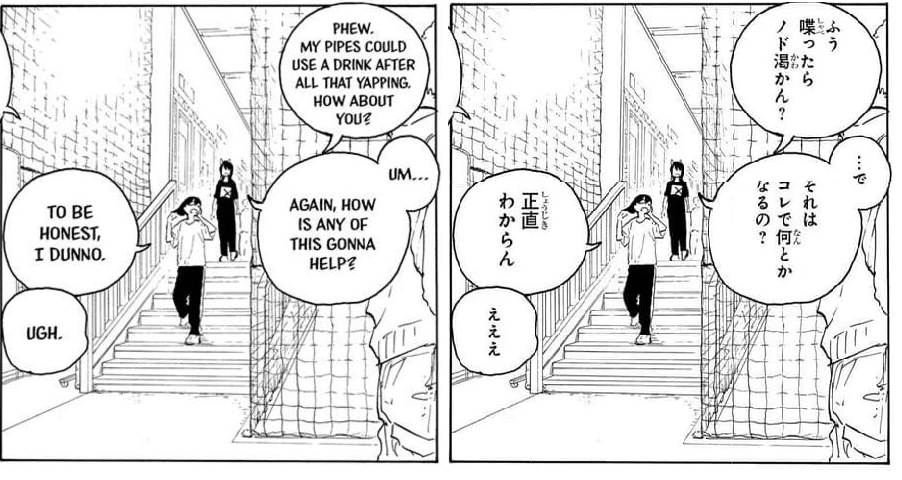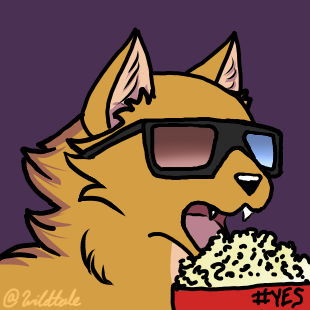Basically, as a teenager, she speaks with slang teenagers use these days and that's the same in Japanese so basically the translation uses modern slangs in English to emulate that feeling, but certain boomer haaaaaates that, because he can't relate, maybe he wants her to talk like a teenager from 10 or 20 years ago.
Or perhaps they want all the japanese memes and slangs untranslated and the corners of the pages filled with notes + 2 extra credit pages explaining the source and cultural origins of the trendy words, memes and abbreviations.
Or perhaps they want a complete neutral translation, similar to what google translate would give you so older people won't feel out of place, because as you know, manga is only read by people above the age of 30
It's not the insertion of modern day teenager slang, it's the insertion where none belong, as well as poor translation of the dialogue that doesn't convey what the characters are saying in Japanese.
In CH. 1, for example, the exchange between mother and daughter goes:
ねぇ これなんだと思う? (Hey, what do you think these are?)
角だと思う (I think they're horns.)
・・・だよね (... of course)
The dialogue is straight forward with Ruri confused and taken aback by her mother's straight deadpan response.
Here's how the localized version changed it:
"So, any thoughts?"
"I think... they're horns."
"Nothing gets past you."
The localization makes her mother seem aloof, introducing the "..." to give her time to think, while it's Ruri who gives a snarky comment immediately by removing her "・・・" from the translation.
The localized version made them exchange their personalities for this conversation. That's not good localization, they're altering the characters' personalities for no reason.
Other examples go as follow:
お父さんも角生えてるから ほれパンたべな (Your father has horns too. Here, eat your bread.) ⇒ "Your dad has horns, so now you do too. Here's your toast."
龍ってなに? (What's a ryuu?) ⇒ "Come again?"
それ何の冗談? (What kind of joke is that?) ⇒ "Har har. Oh wait, I'm not laughing."
念のため休んどいてもいいけど (Just in case, you can take the day off today.) ⇒ "Maybe you should stay home - for obvious reasons."
えっ待って マジなの? (Huh, wait, are you serious?) ⇒ "Wait, I should really go?"
うん マジ (Yes, I'm serious.) ⇒ "Sure."
よっし 間に合う (Alright, I'll make it in time.) ⇒ "I'll prolly make it on time."
・・・確か日本の龍って 『鯉』・・・? (...if I'm not mistaken, a Japanese Ryuu is / a "carp"...?) ⇒ "I guess the traditional ryu is more like... / ...a koi fish?
えっ もしかしてそのツノの話してる? (Eh/ Could it be that you're talking about the horns?) ⇒ "Does that... / ... have something to do with your new look?"
目立ちませんように・・・ (Please, don't let them stand out...) ⇒ "Okay... I'll try not to make a scene..."
やめて 見ないでください (Stop, please don't look at me.) ⇒ "Quit it. Don't look at me."
はい おはよ (Hi, mornin') ⇒ "Morning, one and all."
じゃあ、いいけど (Then, it's fine.) ⇒ "Good enough for me."
いいのか (is it?) ⇒ "Are we sure?"

